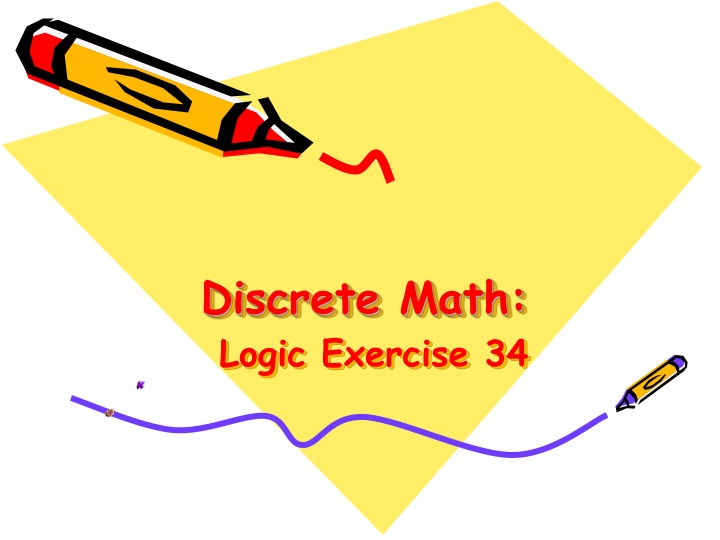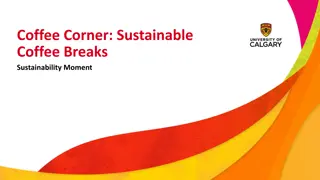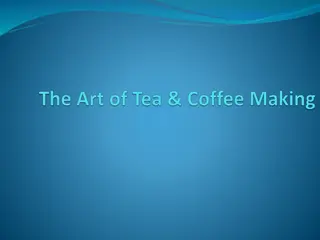Professor Coffee Conundrum
Three professors in a restaurant are asked if everyone wants coffee. The first and second professors don't know, but the third professor says not everyone wants coffee. By logic, the hostess figures out who wants coffee and serves accordingly. This exercise showcases deductive reasoning in a fun scenario involving coffee preferences and logical responses.
Download Presentation

Please find below an Image/Link to download the presentation.
The content on the website is provided AS IS for your information and personal use only. It may not be sold, licensed, or shared on other websites without obtaining consent from the author.If you encounter any issues during the download, it is possible that the publisher has removed the file from their server.
You are allowed to download the files provided on this website for personal or commercial use, subject to the condition that they are used lawfully. All files are the property of their respective owners.
The content on the website is provided AS IS for your information and personal use only. It may not be sold, licensed, or shared on other websites without obtaining consent from the author.
E N D
Presentation Transcript
Discrete Math: Logic Exercise 34
Exercise When three professors are seated in a restaurant, the hostess asks them: Does everyone want coffee? The first professor says: I do not know. The second professor then says: I do not know. Finally, the third professor says: No, not everyone wants coffee. The hostess comes back and gives coffee to the professors who want it. How did she figure out who wanted coffee?
Solution The question was "Does everyone want coffee?" If the first professor did not want coffee, then he would know that the answer to the hostess's question was "no." Therefore we-and the hostess and the remaining professors-know that the first professor does want coffee. The same argument applies to the second professor, so she, too, must want coffee. The third professor can now answer the question. Because she said "no,'' we conclude that she does not want coffee. Therefore the hostess knows to bring coffee to the first two professors but not to the third.
References Discrete Mathematics and Its Applications, McGraw-Hill; 7th edition (June 26, 2006). Kenneth Rosen Discrete Mathematics An Open Introduction, 2nd edition. Oscar Levin A Short Course in Discrete Mathematics, 01 Dec 2004, Edward Bender & S. Gill Williamson























